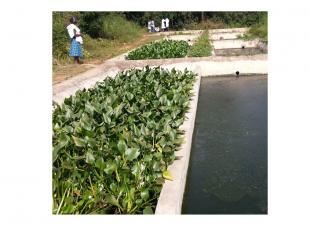In the first stage of the work, Sena Peace Hounkpe Wendeou has investigated the treatment efficiency of the pond with and without macrophytes (plants), as well as conducting a survey into the existing state of sanitation in Contonou. In the second phase, Adrian Mallory will be using sociological methods to investigate the feasibility of engaging with local communities to install and operate small-scale waste water treatment and to benefit from the resource recovery potential.
Principal Investigator:
Co-Investigators:
Martin Aina (Université Abomey-Calavi, Benin)
Last modified:
Thursday, May 13, 2021 - 17:49



